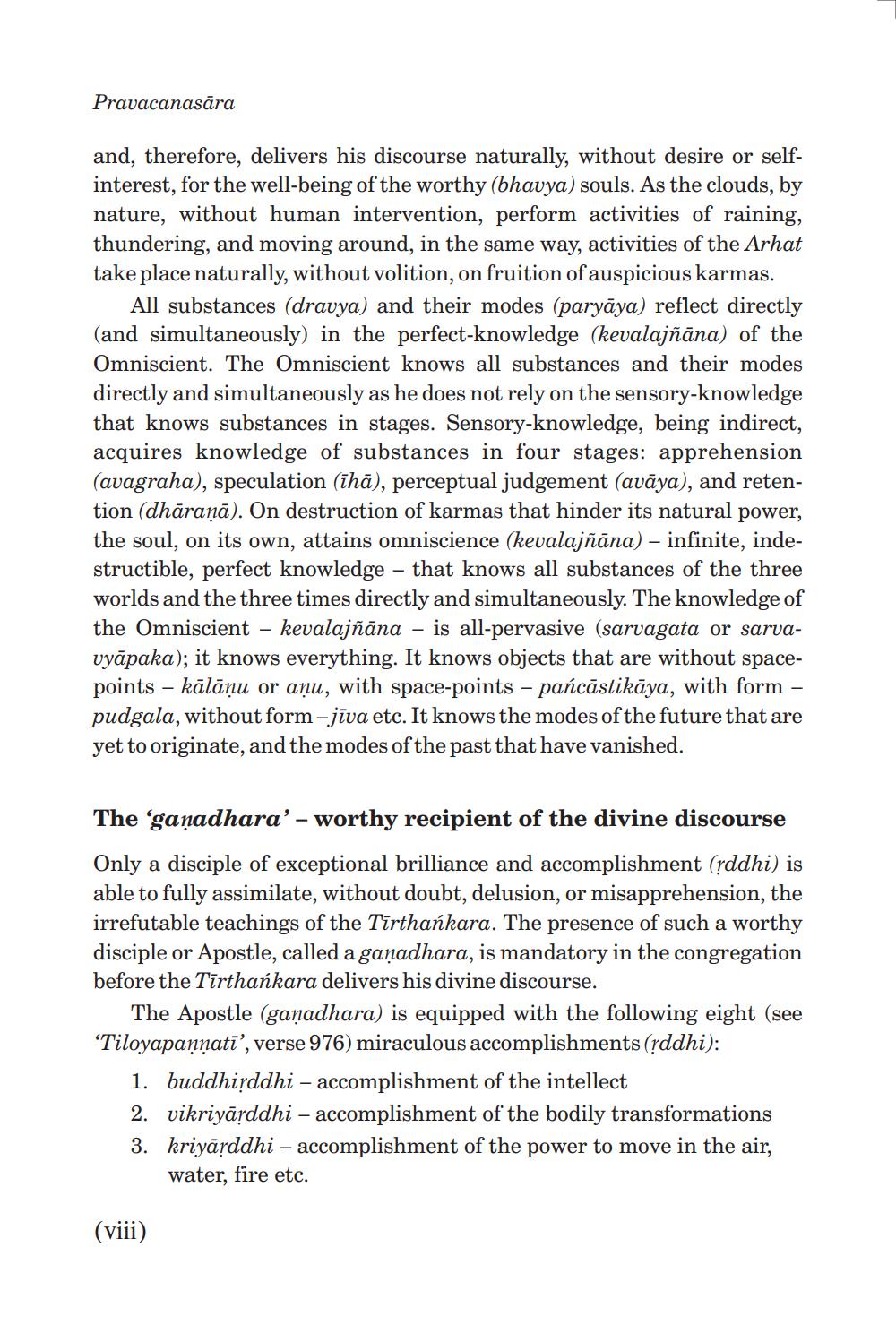Book Title: Pravachansara Author(s): Vijay K Jain Publisher: Vikalp Printers View full book textPage 8
________________ Pravacanasāra and, therefore, delivers his discourse naturally, without desire or selfinterest, for the well-being of the worthy (bhavya) souls. As the clouds, by nature, without human intervention, perform activities of raining, thundering, and moving around, in the same way, activities of the Arhat take place naturally, without volition, on fruition of auspicious karmas. All substances (dravya) and their modes (paryāya) reflect directly (and simultaneously) in the perfect-knowledge (kevalajñāna) of the Omniscient. The Omniscient knows all substances and their modes directly and simultaneously as he does not rely on the sensory-knowledge that knows substances in stages. Sensory knowledge, being indirect, acquires knowledge of substances in four stages: apprehension (avagraha), speculation (ihā), perceptual judgement (avāya), and retention (dhāraņā). On destruction of karmas that hinder its natural power, the soul, on its own, attains omniscience (kevalajñāna) – infinite, indestructible, perfect knowledge - that knows all substances of the three worlds and the three times directly and simultaneously. The knowledge of the Omniscient – kevalajñāna – is all-pervasive (sarvagata or sarvavyāpaka); it knows everything. It knows objects that are without spacepoints – kālāņu or aņu, with space-points - pańcāstikāya, with form - pudgala, without form -jīva etc. It knows the modes of the future that are yet to originate, and the modes of the past that have vanished. The ‘ganadhara' - worthy recipient of the divine discourse Only a disciple of exceptional brilliance and accomplishment (rddhi) is able to fully assimilate, without doubt, delusion, or misapprehension, the irrefutable teachings of the Tīrthankara. The presence of such a worthy ciple or Apostle, called a gañadhara, is mandatory in the congregation before the Tīrthankara delivers his divine discourse. The Apostle (ganadhara) is equipped with the following eight (see ‘Tiloyapaņņatī', verse 976) miraculous accomplishments (rddhi): 1. buddhiļddhi - accomplishment of the intellect 2. vikriyārddhi – accomplishment of the bodily transformations 3. kriyārddhi – accomplishment of the power to move in the air, water, fire etc. (viii)Page Navigation
1 ... 6 7 8 9 10 11 12 13 14 15 16 17 18 19 20 21 22 23 24 25 26 27 28 29 30 31 32 33 34 35 36 37 38 39 40 41 42 43 44 45 46 47 48 49 50 51 52 53 54 55 56 57 58 59 60 61 62 63 64 65 66 67 68 69 70 71 72 73 74 75 76 77 78 79 80 81 82 ... 407
